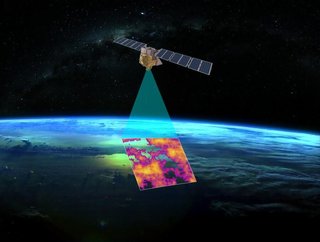Google Maps Methane Leaks from Space with EDF Satellite

Much of the discussion around greenhouse gases tends to focus on carbon dioxide (CO2), yet scientists believe up to 30% of the global warming we have witnessed since the industrial Revolution is down to methane (CH4).
A powerful heat-trapping gas, around 60% of methane emissions today come from human activities – agriculture, fossil fuels, and landfill – with the remaining 40% from natural processes, such as wetlands.
The United Nations has called for a 45% cut in methane emissions by 2030 – which could reduce global warming by as much as 0.3 degrees Celsius by 2045.
US Space Agency NASA, for one, has been trying to monitor and report on these emissions, with specialist equipment attached to aircraft and even the International Space Station.
Now Google is taking methane monitoring to another level by partnering with the Environmental Defense Fund (EDF) to use satellite imagery and AI modelling to create an accurate map of methane leaks – publicly available on Google Earth Engine.
In March, EDF’s satellite MethaneSAT will launch on the SpaceX Falcon 9 rocket, and will orbit the earth 15 times a day, streaming live images.
The hope is that this satellite, coupled with Google’s latest technology, will be able to spot problems, help fix leaks, and therefore ultimately reduce warming.
Key to this initiative is putting actionable data into the hands of stakeholders so anyone can use it and take the necessary actions.
Google Cloud will provide the MethaneSAT team with computing capabilities to process the huge amounts of data generated.
Google will also help EDF improve its database of global oil and gas infrastructure and to integrate MethaneSAT data into Google Earth Engine.
Identifying Methane Leaks and Polluters
Changes in regulations around the world also make a business case for MethaneSAT.
Back in November 2023, the European Union passed a law on fossil gas imports starting in 2030 that puts pressure on global suppliers to reduce methane leaks if they want to continue selling their products in the trading bloc.
In the United States, too, the Environmental Protection Agency (EPA) has proposed imposing fines on methane emitters in the oil and gas industry. In December, EPA went even further, issuing rules on methane emissions from existing oil and gas operations, and using monitoring from the likes of MethaneSAT to drive regulatory action.
Of course, there is an elephant – or rather cow – in the room.
There are 1.5 billion bovines raised for their meat worldwide, and they are significant contributors to global methane emissions.
While MethaneSAT may not highlight those ‘acceptable’ emissions, it is hoped it will identify major leaks from companies that can be addressed.
So-called super-emitter leaks can be devastating.
In April 2022, a leak in Delhi accounted for 434 tonnes per hour – the same pollution as 68 million cars running their engines at the same time.
Google is playing a pivotal role in the EDF project that has also drawn on experts from the likes of SpaceX, Ball Aerospace, Harvard School of Engineering and Applied Sciences, and the New Zealand Space Agency.






